Commitment to Lifelong Learning, Diversity, and Harmonious Leadership
An interview with President Emerita Judith Kuipers, PhD, on her reflections of Fielding.
Q: Can you please share one memorable experience from your time at Fielding that exemplifies what makes us a special place?
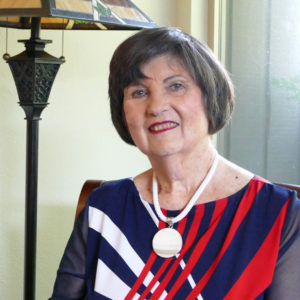 A: I had the opportunity to meet a 73-year old student when I was interviewing for president, and I’ll never forget my encounter with him. I asked him, “Well, you are a student here at Fielding?” He responded, “Yes. You act surprised?” I was surprised and said to him, “You will have to forgive me, but I come from a really traditional education.” I then asked him why he wanted to be a student at Fielding, to which he replied, “Because life is about life-long learning.” This may sound dumb, but it was as if someone had taken a blinder off my eyes. That man was actually the one that made me interested in taking a serious look at Fielding. Sure, life can be about education and making a living, but it is also about living life. This person taught me that he went back to Fielding because even though he was in his 70s, he wanted to live a meaningful life. This encounter happened many years ago, but this memory is still vivid in my mind.
A: I had the opportunity to meet a 73-year old student when I was interviewing for president, and I’ll never forget my encounter with him. I asked him, “Well, you are a student here at Fielding?” He responded, “Yes. You act surprised?” I was surprised and said to him, “You will have to forgive me, but I come from a really traditional education.” I then asked him why he wanted to be a student at Fielding, to which he replied, “Because life is about life-long learning.” This may sound dumb, but it was as if someone had taken a blinder off my eyes. That man was actually the one that made me interested in taking a serious look at Fielding. Sure, life can be about education and making a living, but it is also about living life. This person taught me that he went back to Fielding because even though he was in his 70s, he wanted to live a meaningful life. This encounter happened many years ago, but this memory is still vivid in my mind.
Q: What founding principles from Fielding’s early days/history endures today?
A: One of the founding principles from Fielding’s early days that still endures today is continuous learning. It is even more important today than it was years ago because of the rapid change, not just in Santa Barbara or the United States, but the change happening around the world. Pretty soon, we are going to be on the moon! That is why adults go to Fielding, because Fielding believes in continuous learning and dealing with the actual conditions of the world.
Another found principle that endures today is Fielding’s emphasis on difference. I am not only talking about a difference in race or culture, I am talking about any difference you can think of. We are the only ones that are responsible for our own behavior and it is important to understand and respect everyone’s perspective differences. By understanding and accepting the notion of difference, it not only makes you better able to relate to another person, but it frees that person to enrich your life as well. When you cut a person off just because their views are different from yours, you are depriving them of their relationship with you, and you are depriving yourself of your relationship with them and what you can learn from them. There are parallels of this notion on difference to lifelong learning as well. Everyone is different, and are in different stages in life, and it is never late to improve your living. Which is why it is important for Fielding to never lose its commitment to lifelong learning and attract diverse adult learners who may be in different stages of their lives and can enrich the lives of others.
Q: What would you like to see Fielding do more of, or never lose, as we move into the 21st century?
A: As we move into the 21st century, I hope Fielding never loses its commitment to life-long learning, diversity, and the importance of shared leadership and all departments working together. I always use a symphony as an analogy when describing leaders working in harmony. A flute is beautiful when you hear it individually, but when you bring other individuals who also play a different instrument, you get a musical composition by Bach or Beethoven. Leaders need to play well individually, but they also need to play well together.
The “School of Fish”
An interview with Provost Emerita, Anna DiStefano, EdD, on her reflections of Fielding.
Q: Can you please share one memorable experience from your time at Fielding that exemplifies what makes us a special place.
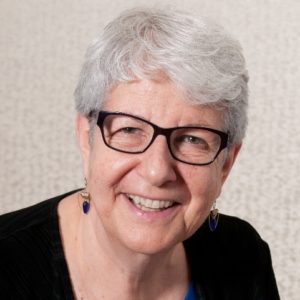 A: Well, there is not just one memorable experience but I will try to contain myself. I have been with Fielding since the early 80s, so I have experienced different eras in the institution’s life. So, there are many things I remember very fondly. In the earlier days of Fielding, we had Community Meetings that were highly interactive and we often did things that made us laugh in HOD (Human & Organization Development), which is where I began my Fielding work. I was a program director and then the Dean for a while, but we had a whole thing with the “fish queen” and all kinds of things about the “School of Fish.”
A: Well, there is not just one memorable experience but I will try to contain myself. I have been with Fielding since the early 80s, so I have experienced different eras in the institution’s life. So, there are many things I remember very fondly. In the earlier days of Fielding, we had Community Meetings that were highly interactive and we often did things that made us laugh in HOD (Human & Organization Development), which is where I began my Fielding work. I was a program director and then the Dean for a while, but we had a whole thing with the “fish queen” and all kinds of things about the “School of Fish.”
The “School of Fish” came about from a day when we went down for a beach side picnic without realizing that the tide was coming in. It pushed us further and further toward the cliff side, and pretty soon we were right up against the cliff with not much beach to picnic. So, Don Bushnell claimed that he saw a school of fish out in the ocean, which beckoned to us and drew us to safety and so we told that story repeatedly. We began to have sort of a sacred fish. We had plastic fish that we gave out to people when they did something extraordinary. I have some fish memorabilia from when I retired from HOD. In addition, the “fish queen” was one of our students, Carolyn LeJuste, who, I hope, remembers this story. She walked into a community meeting dressed as a fish with scales all over her and we did it as a fundraiser for the scholarship fund, so you know the fish has always been a symbol to me of the playfulness of Fielding, but also the generosity and creativity of Fielding.
We could be very silly and that made those days memorable for me. We also had things that made us cry. During one national session, we had a very straightforward, open, honest, and difficult conversation about race at the time. We also had some very complicated discussions in those Community Meetings about how to best diversify the faculty. When I first came to Fielding, the faculty were white and there were many men, and so we had to think about how to diversify. We thought and had meaningful conversations about equity. So I think of those Community Meetings as sort of encapsulating where we had laughter, sadness, and honesty. These Community Meetings are one of the things I take away from Fielding and is a significant memory that is very special to me.
Q: What founding principles from our early days/history endures today?
A: One of the founding principles, which I think and hope endures, is that learning is an active process. Both students and faculty contribute to learning by contributing their energy. No one should come to Fielding and expect that it is going to be a passive experience or that she will be a passive participant. It is very much a shared venture. I think that both faculty and students are welcomed and I would hope, perhaps even required, to bring their whole selves into the experience of what education is. I think that the action orientation of learning is important because it makes the experience complete. You know, there is that saying about the head, hands, and the heart, and I think that is important and what I hope continues today at Fielding, as that was part of our founding principles as I experienced them.
Q: What would you like to see Fielding do more of, or never lose, as we move into the 21st century?
A: Well, this has been something that has probably been on my mind. Something that has been on my Fielding wish list for a very long time, I would dare to say decades, is that I would like to see Fielding remain and deepen its commitment to the integration of ideas with action. There are too many challenges in the world today for people as talented as those in the Fielding community to remain on the sidelines. We have to use knowledge to serve the cause of change and greater equity and justice. I think that change needs to be informed by the knowledge created together in communities like Fielding. I think any efforts that can be made to support students and faculty to work collaboratively with other organizations, like the Highlander Center for instance, is really important and should not just be for our own individual careers or our own institutional purpose. Working with other organizations should be about contributing to the greater good and making the world a better place.
In the end, meaningful things are created through relationships and those relationships remain important to me. Whether or not I have seen people in the last five or twenty years, the people of Fielding remain very important to me.
Looking Backwards to Look Forward
An interview with HOD Faculty Emeriti Keith Melville, PhD, on his reflections of Fielding.
Q: Can you please share one memorable experience from your time at Fielding that exemplifies what makes us special?
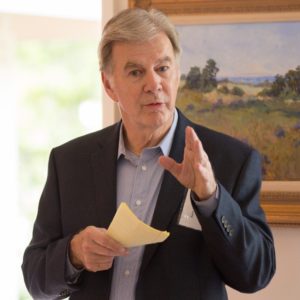 A: In March 1974, just a few weeks after the Fielding Institute was founded, I had a memorable conversation with Frederic Hudson, who was one of Fielding’s co-founders. A good friend of mine, Reid Strieby, was Fielding’s second enrolled student and one of its earliest graduates. He had invited Frederic, his faculty mentor, to lead a weekend cluster meeting that was attended by a small group of newly enrolled students, all mid-career professionals. As Frederic and I had coffee each morning, we discussed this brave and radical new venture called Fielding.
A: In March 1974, just a few weeks after the Fielding Institute was founded, I had a memorable conversation with Frederic Hudson, who was one of Fielding’s co-founders. A good friend of mine, Reid Strieby, was Fielding’s second enrolled student and one of its earliest graduates. He had invited Frederic, his faculty mentor, to lead a weekend cluster meeting that was attended by a small group of newly enrolled students, all mid-career professionals. As Frederic and I had coffee each morning, we discussed this brave and radical new venture called Fielding.
As we soon discovered, we had both done our graduate work at Columbia University. What seemed remarkable to us was how traditional and conventional Columbia’s approach was. In sharp contrast to dynamic enterprises that adjust their business model to new circumstances, very little had changed in higher education with regard to how faculty conducted the graduate experience. Most educators, then and now, recalled how they were taught and saw little reason to do anything different.
Fielding’s learning model, as Frederic described it, amounted to a radical critique. More than a critic, he was a visionary with a plan and an audacious ambition. He was a rebel who wanted to push graduate education out of its comfort zone. Frederic wanted to create an institution that was oriented to students’ learning needs rather than the interests and research projects of faculty; an institution in which faculty facilitate learning, but not mainly by teaching; an institution that combines research and real-world problem solving; and one that recognizes the unique needs of mid-life, mid-career adults. He was passionate about the potential of graduate education as a vehicle for adult transformation.
Recognizing that most mid-career adults are not able to interrupt their lives to attend residential, campus-based programs, Fielding set out to meet their needs with a distributed learning program. Twenty-five years before the advent of the Internet, he foresaw how education would change in an electronically connected universe.
Though at the time he did not anticipate that it would take ten years for Fielding to be fully accredited, he was well aware of the resistance this model of education would encounter. The term “visionary” is often used, sometimes quite loosely. In the case of Fielding’s founders, it is accurate and well-deserved. An upstart in the tradition-bound world of higher education, Fielding not only survived, it grew and thrived. Today, it is recognized as a pioneer that anticipated some of the main respects in which higher education would adapt to new challenges.
What took place in Fielding’s early years was an against-the-odds success story. The Founders were visionaries who created an institution whose influence has been disproportionate to its relatively modest size.
Q: What would you like to see Fielding do more of, or not lose sight of, as it moves into the future?
A: Fielding’s evolution over the decades sheds a certain light on what often happens to mission-driven institutions after their founding generation. In the book I wrote about Fielding – entitled “A Passion for Adult Learning: How the Fielding model is transforming doctoral education” – I recalled the words of Roy Fairfield, who had been a leader of two progressive programs, Antioch and Union. He asked rather plaintively, “Is it inevitable that experimental programs become increasingly like those from which they revolted?”
That is something we in Fielding need to keep in mind and push back against. Fielding’s learning model was a response to what was missing in higher education at the time. We need to remember that the point is not simply to compete in an increasingly competitive niche in higher education, but to stay true to the founders’ impulse, which was to ask what their institution was adding distinctively. The future of graduate education belongs to institutions that continually reinvent themselves, which becomes increasingly difficult as programs become set in their ways.
A decade after Fielding started, Hallock Hoffman, one of the co-founders, ended the 10th year celebration with these words: “It is time to begin imagining Fielding anew, under conditions quite different from those of our origin.” We need to keep asking what is the best learning model for mid-career adults and how do we meet the needs of today’s students?
That is the challenge for us today as we celebrate our 47th anniversary.
Q: What would you like to see Fielding do more of, or never lose, as we move into the 21st century?
A: Fielding’s founders were bold pioneers. I hope we never lose that boldness and willingness to set out in new directions.
Join Over 7,500 Fielding Alumni Located Around The World!
Change the world. Start with yours.™
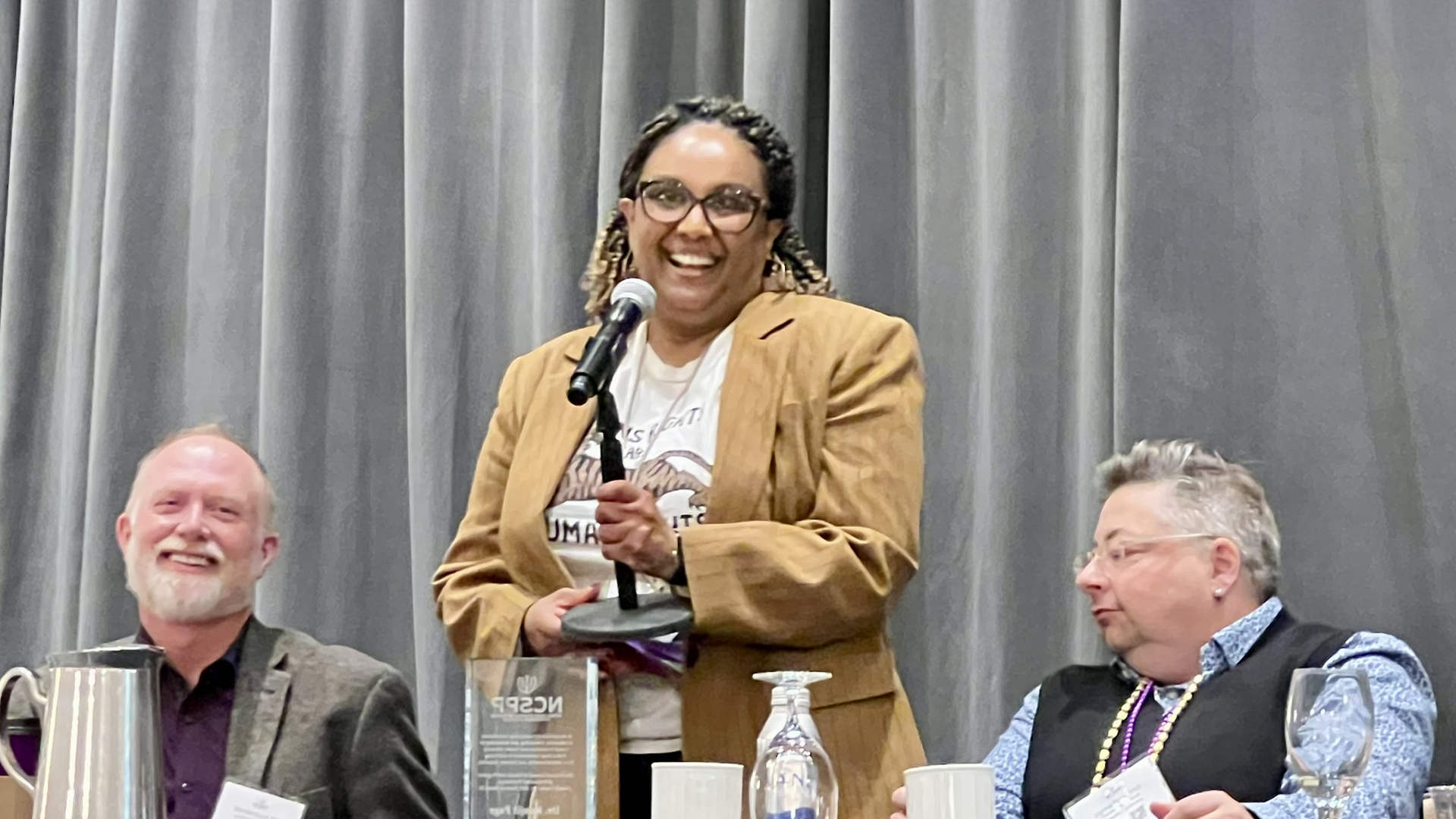
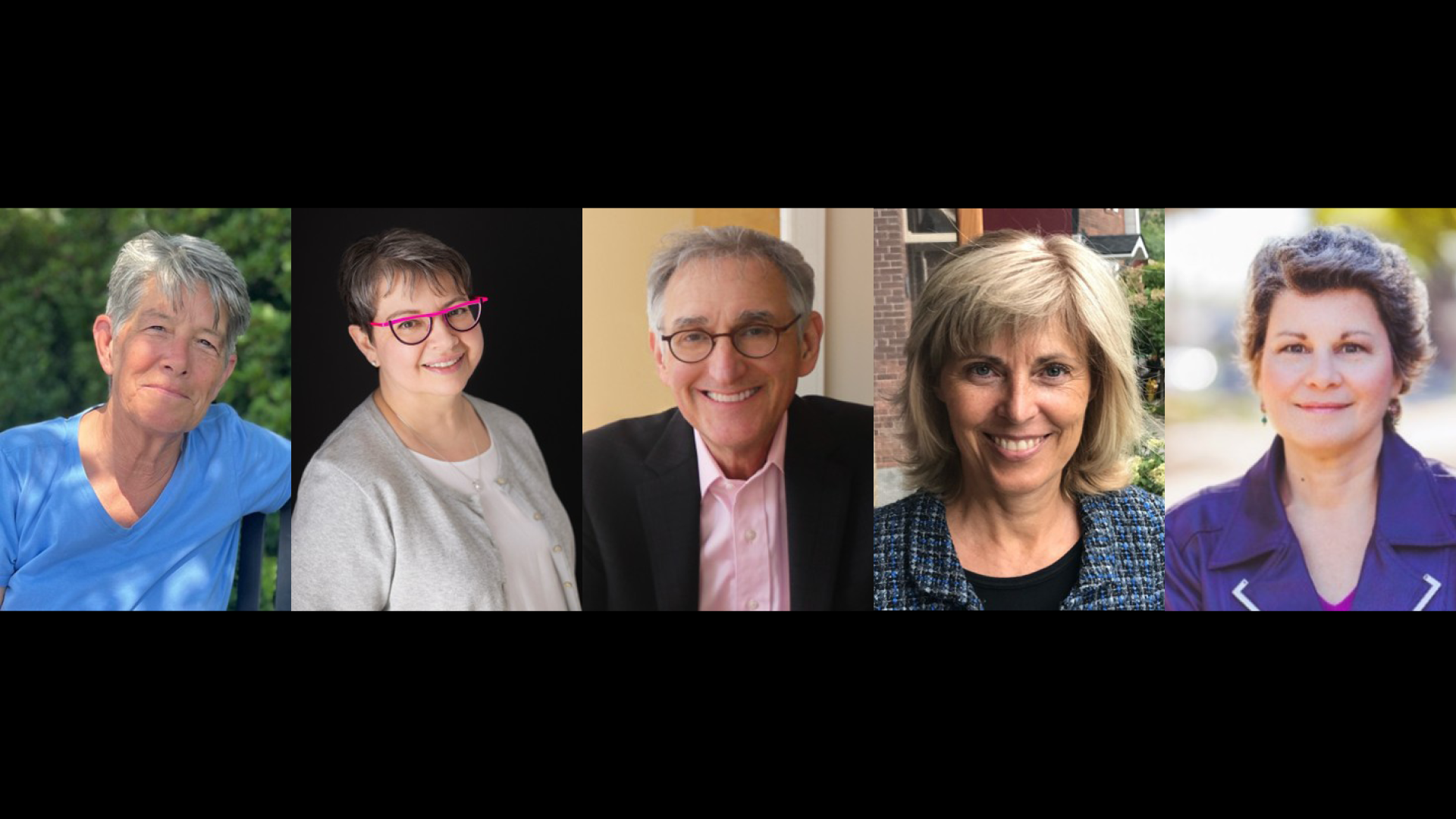
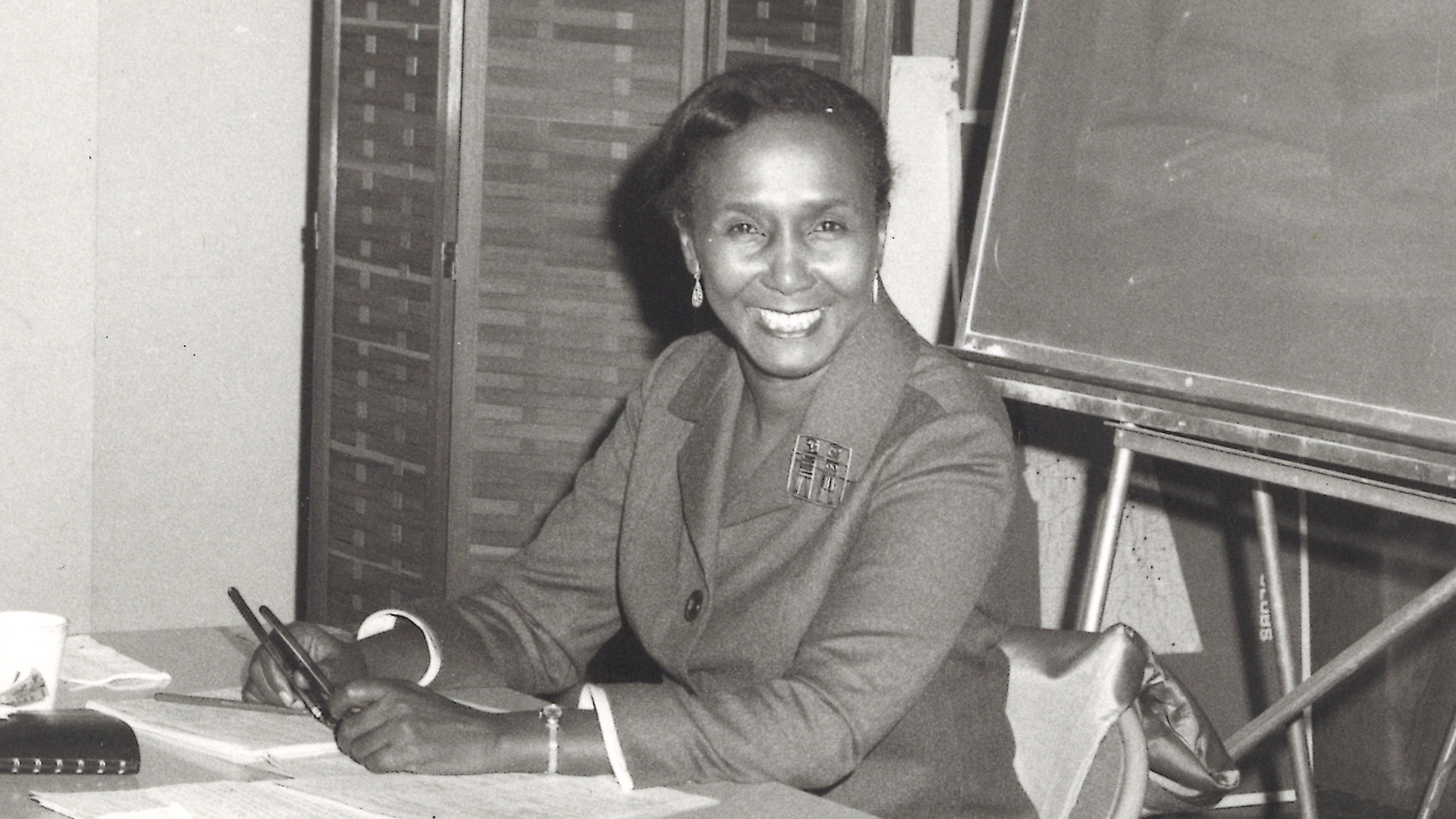



Get Social